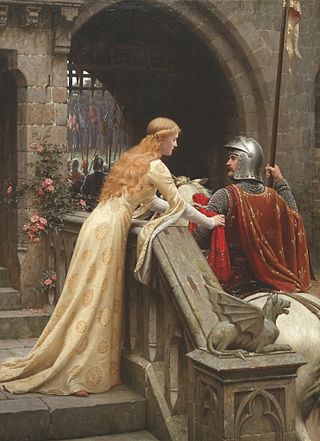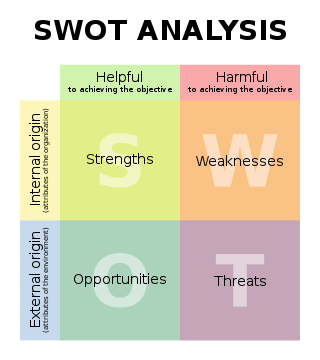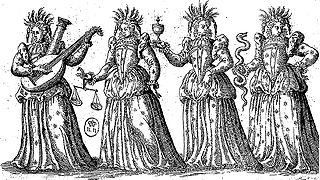
Courage is the choice and willingness to confront agony, pain, danger, uncertainty, or intimidation. Valor is courage or bravery, especially in battle.

A virtue is a trait of excellence, including traits that may be moral, social, or intellectual. The cultivation and refinement of virtue is held to be the "good of humanity" and thus is valued as an end purpose of life or a foundational principle of being. In human practical ethics, a virtue is a disposition to choose actions that succeed in showing high moral standards: doing what is right and avoiding what is wrong in a given field of endeavour, even when doing so may be unnecessary from a utilitarian perspective. When someone takes pleasure in doing what is right, even when it is difficult or initially unpleasant, they can establish virtue as a habit. Such a person is said to be virtuous through having cultivated such a disposition. The opposite of virtue is vice, and the vicious person takes pleasure in habitual wrong-doing to their detriment.

A vice is a practice, behaviour, or habit generally considered morally wrong in the associated society. In more minor usage, vice can refer to a fault, a negative character trait, a defect, an infirmity, or a bad or unhealthy habit. Vices are usually associated with a fault in a person's character or temperament rather than their morality.

Humility is the quality of being humble. Dictionary definitions accentuate humility as low self-regard and sense of unworthiness. In a religious context, humility can mean a recognition of self in relation to a deity, and subsequent submission to that deity as a member of that religion. Outside of a religious context, humility is defined as being "unselved"—liberated from consciousness of self—a form of temperance that is neither having pride nor indulging in self-deprecation.

Virtue ethics is an approach that treats virtue and character as the primary subjects of ethics, in contrast to other ethical systems that put consequences of voluntary acts, principles or rules of conduct, or obedience to divine authority in the primary role.

SWOT analysis is a strategic planning and strategic management technique used to help a person or organization identify Strengths, Weaknesses, Opportunities, and Threats related to business competition or project planning. It is sometimes called situational assessment or situational analysis. Additional acronyms using the same components include TOWS and WOTS-UP.
The Storytelling System is a role-playing game system created by White Wolf, Inc. for the Chronicles of Darkness, a game world with several pen and paper games tied in. The Storytelling System is largely based on the Storyteller System, the rule set used for White Wolf's other, older game setting, the World of Darkness.

Temperance in its modern use is defined as moderation or voluntary self-restraint. It is typically described in terms of what a person voluntarily refrains from doing. This includes restraint from revenge by practicing mercy and forgiveness, restraint from arrogance by practicing humility and modesty, restraint from excesses such as extravagant luxury or splurging, restraint from overindulgence in food and drink, and restraint from rage or craving by practicing calmness and equanimity.

Martin Elias Peter Seligman is an American psychologist, educator, and author of self-help books. Seligman is a strong promoter within the scientific community of his theories of well-being and positive psychology. His theory of learned helplessness is popular among scientific and clinical psychologists. A Review of General Psychology survey, published in 2002, ranked Seligman as the 31st most cited psychologist of the 20th century.

The Nicomachean Ethics is among Aristotle's best-known works on ethics: the science of the good for human life, that which is the goal or end at which all our actions aim. It consists of ten sections, referred to as books or scrolls, and is closely related to Aristotle's Eudemian Ethics. The work is essential in explaining Aristotelian ethics.

The cardinal virtues are four virtues of mind and character in both classical philosophy and Christian theology. They are prudence, justice, fortitude, and temperance. They form a virtue theory of ethics. The term cardinal comes from the Latin cardo (hinge); these four virtues are called “cardinal” because all other virtues fall under them and hinge upon them.
In Christian tradition, the seven heavenly virtues combine the four cardinal virtues of prudence, justice, temperance, and fortitude with the three theological virtues of faith, hope, and charity.

Strength is a Major Arcana tarot card, and is numbered either XI or VIII, depending on the deck. Historically it was called Fortitude, and in the Thoth Tarot deck it is called Lust. This card is used in game playing as well as in divination.
Akrasia is a lack of self-control or acting against one's better judgment. It is sometimes translated into English as incontinence. Beginning with Plato, a variety of philosophers have attempted to determine whether or not akrasia exists and how best to define it.
Aristotle first used the term ethics to name a field of study developed by his predecessors Socrates and Plato which is devoted to the attempt to provide a rational response to the question of how humans should best live. Aristotle regarded ethics and politics as two related but separate fields of study, since ethics examines the good of the individual, while politics examines the good of the city-state, which he considered to be the best type of community.
In a game of chess, the pawn structure is the configuration of pawns on the chessboard. Because pawns are the least mobile of the chess pieces, the pawn structure is relatively static and thus plays a large role in determining the strategic character of the position.

Don Bosco High School is a Roman Catholic all-male school in Matunga, Mumbai, India. It has a subsidiary which was built in 1970 in Borivali.
The VIA Inventory of Strengths (VIA-IS), formerly known as the "Values in Action Inventory," is a proprietary psychological assessment measure designed to identify an individual's profile of "character strengths".
Humanity is a virtue linked with altruistic ethics derived from the human condition. It signifies human love and compassion towards each other. Humanity differs from mere justice in that there is a level of altruism towards individuals included in humanity more so than in the fairness found in justice. That is, humanity, and the acts of love, altruism, and social intelligence are typically individual strengths while fairness is generally expanded to all. Humanity is one of six virtues that are consistent across all cultures.












